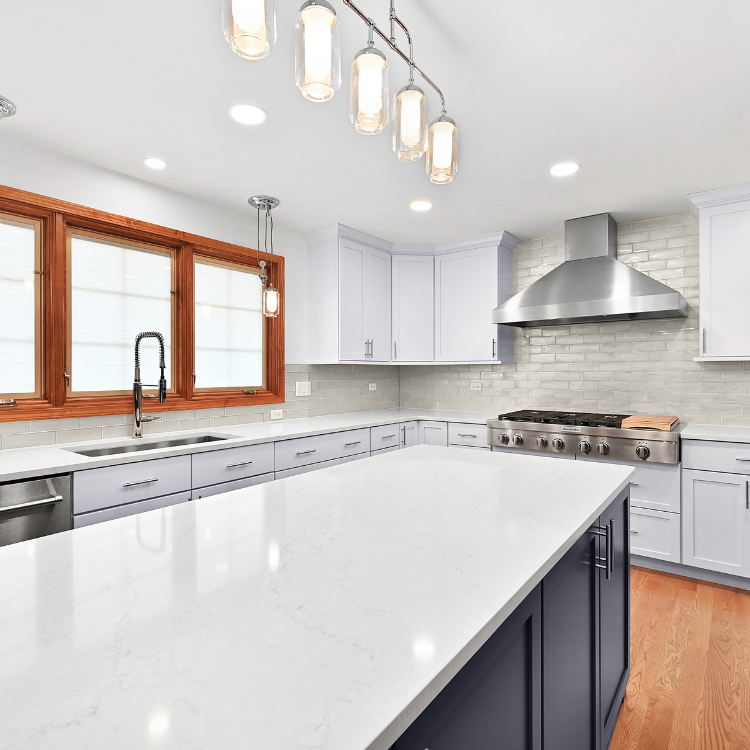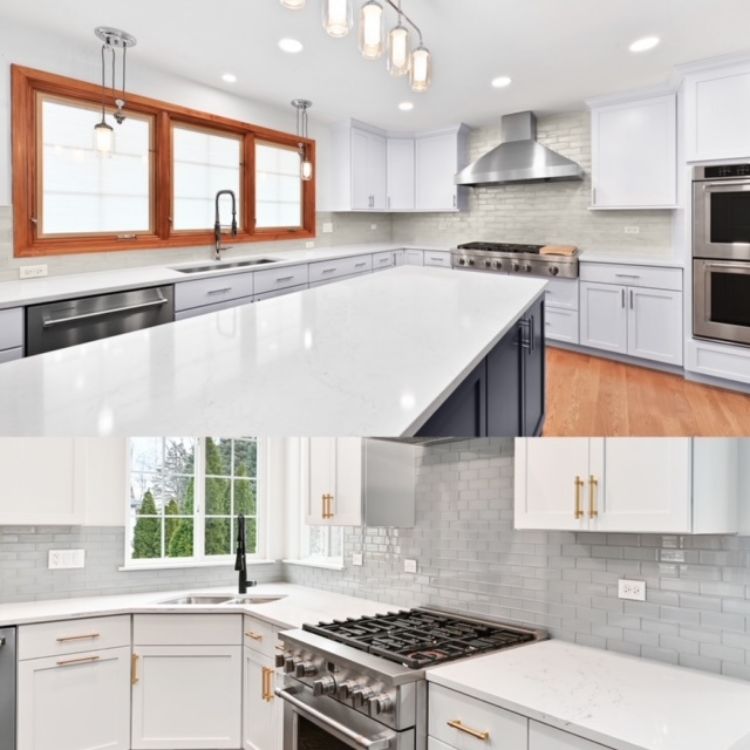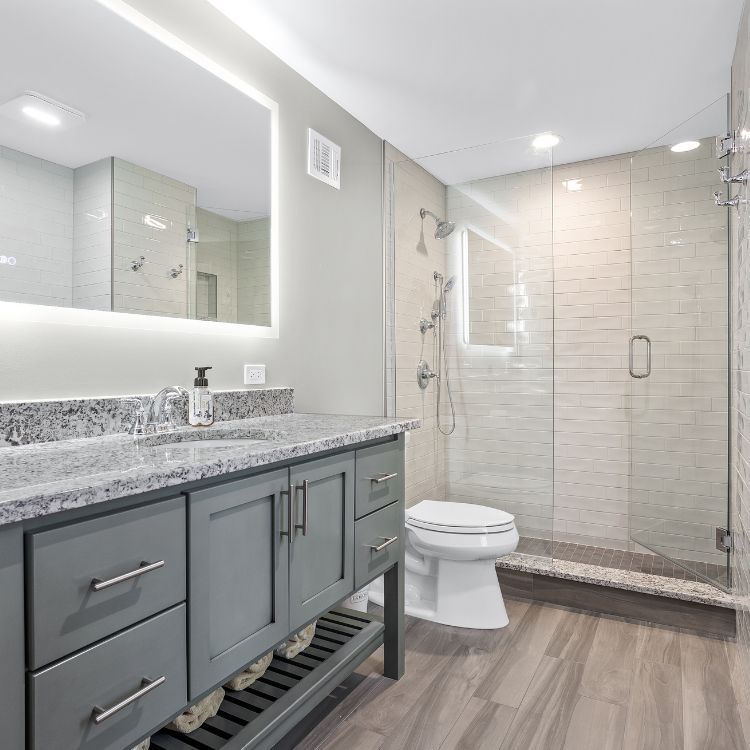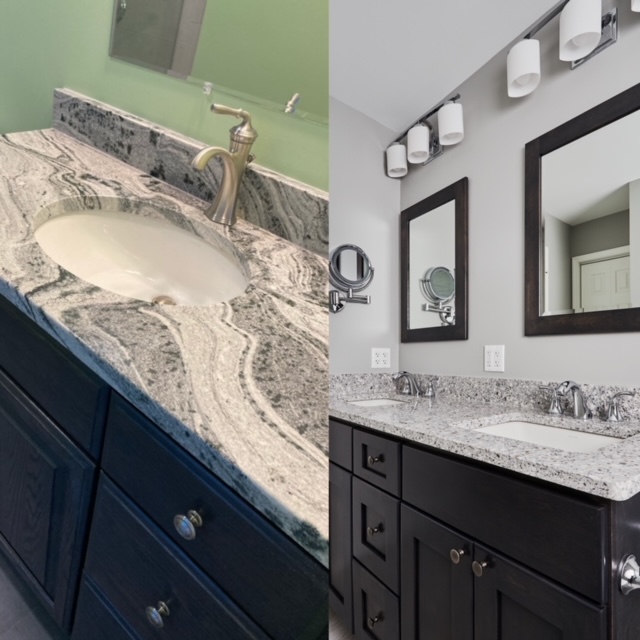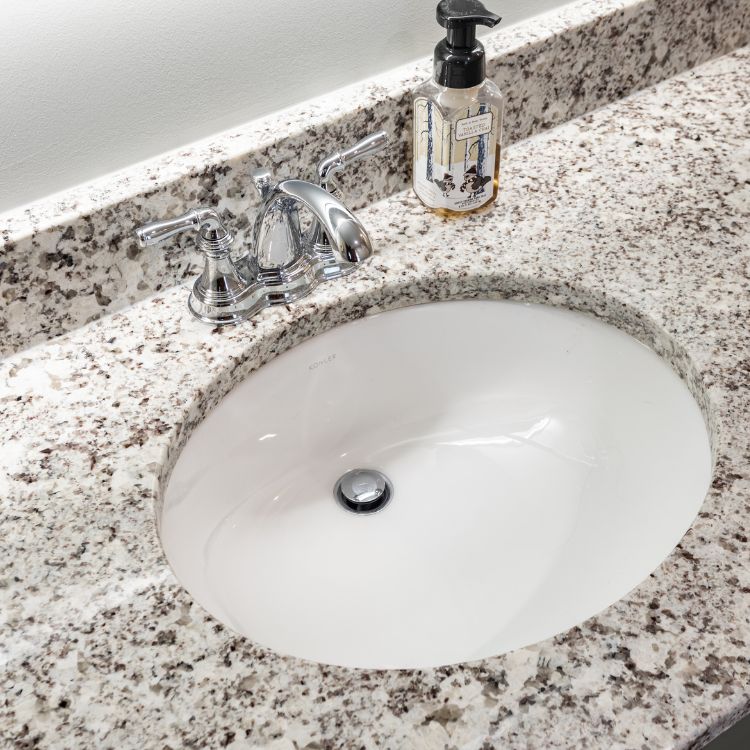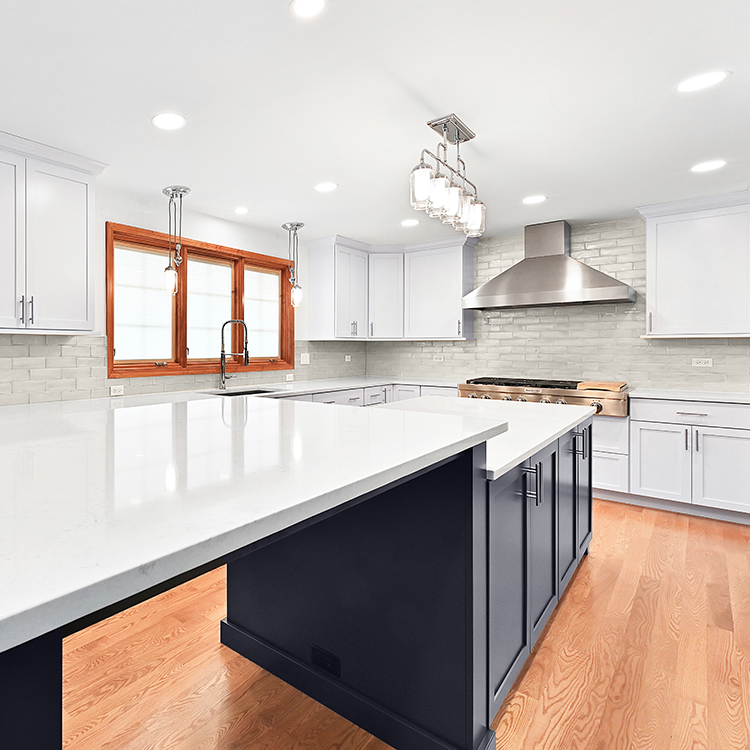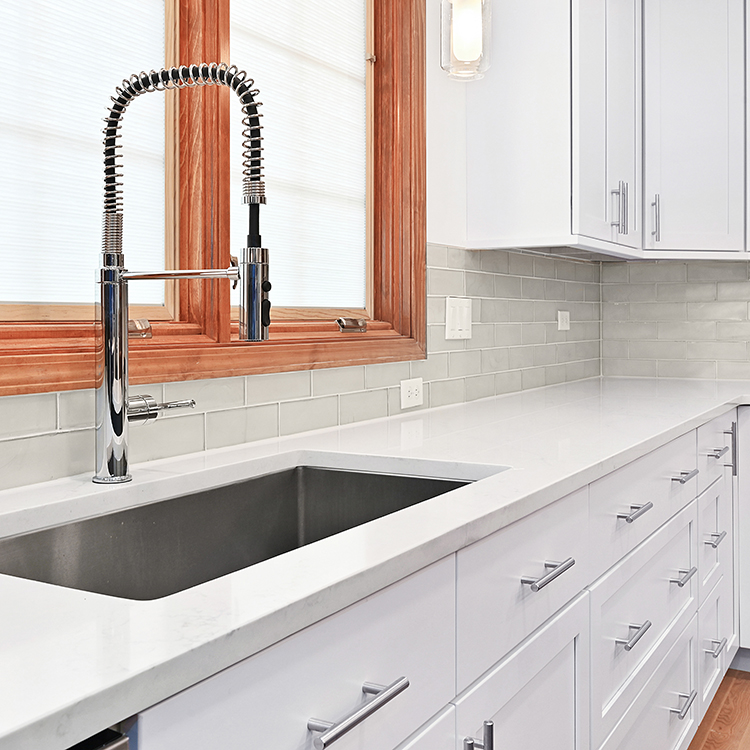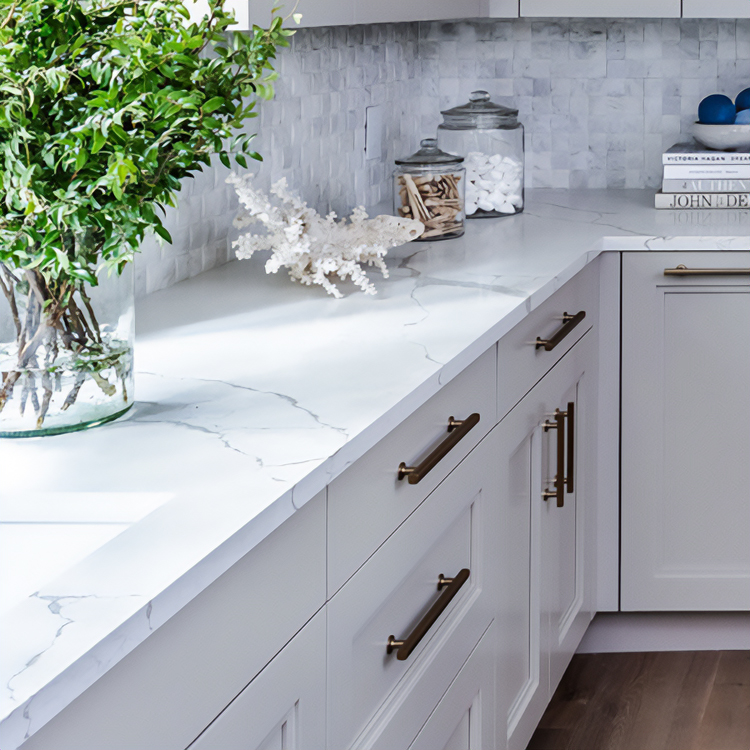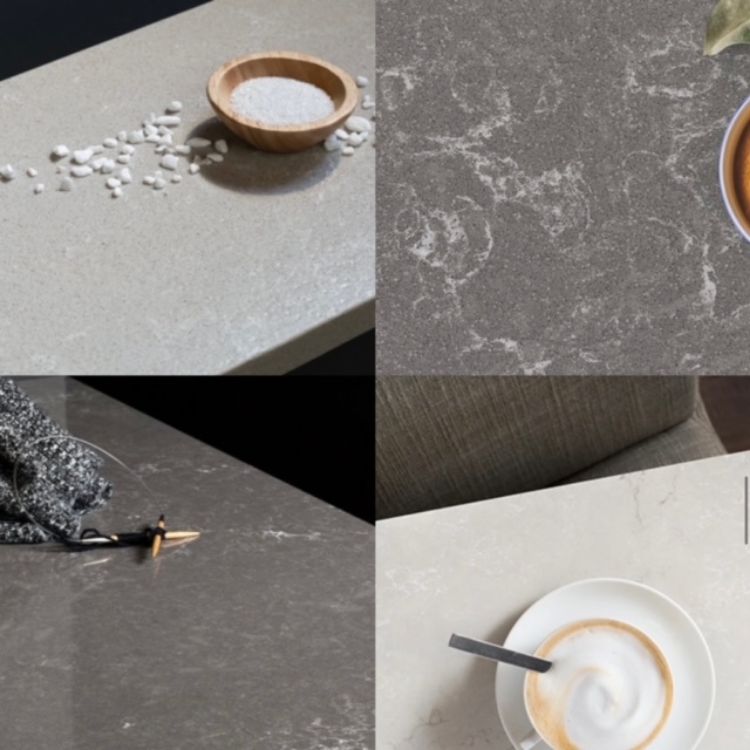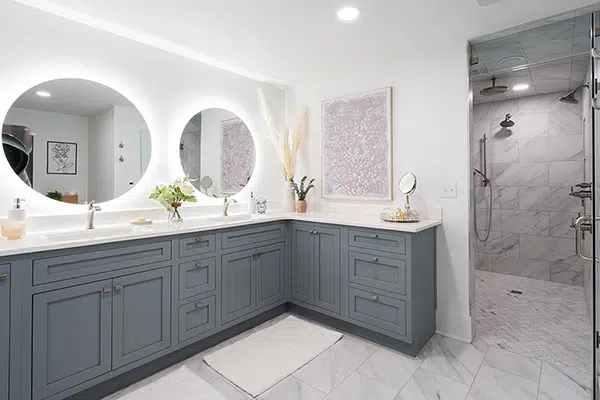According to industry experts, countertops, whether in the kitchen or bathroom, can take up at least 10% of your overall renovation budget. Homeowners know that these surfaces are going to be used daily, so they want to feel confident in their selection.
Not only do countertops need to function for years to come, they also need to look great. And if the kitchen is the first thing people notice in homes, then a countertop is the focus of that kitchen. The design you choose for your countertop can really drive the overall vibe of your space. You want to make a choice that reflects your personal style but also fits into your lifestyle.
While functionality and durability are key considerations when selecting your kitchen countertops, when it comes to bathrooms you can primarily focus on aesthetics.Your bathroom countertops aren’t going to take the everyday wear and use that your kitchen countertops will, and as a result you can focus primarily on appearance. The style, design, and coloring used in your bathroom countertops should reflect your personal taste and preferences.
Whether you’re looking to build new or remodel, granite and quartz are probably the two countertop materials that come to the forefront. Both materials are considered high-end, sleek, and their designs are favored because they are varied and stylish. Both quartz and granite are durable and will last you many years to come.
Although both materials have similarities, they’re only superficial. In fact, the “granite vs. quartz” debate is a heated one among home buyers. So which is the preferred stone and why?
Let’s take a look at the composition and appearance of both.
Granite is a 100% natural rock formed over time by the cooling of molten lava. As that lava cools and compresses, it forms the flecks and grooves that give granite countertop its character. It comes directly from stone quarries and is then cut into manageable slab sizes, polished, and custom cut into countertops.
Each granite slab is slightly different in mineral pattern and color. This means that no two slabs are identical, offering homeowners the opportunity to be completely unique in their countertop design.
Quartz on the other hand is a manmade material made of quartz chips and dust bound together with resin. This is an engineered stone that comes in a variety of slab sizes and shapes.
Quartz countertops offer a similar speckled appearance to granite, but since it is manmade, the color options are pretty limitless. Resins can be tinted to any hue and the quartz chips can be as uniform or diverse in color as you’d like. Therefore with quartz, you have more options.
If price is a top priority, there are some differences to consider. First of all, both materials are considered upscale, and they are competitively priced with one another.
The cost of granite can vary depending on whether you choose tiles or slabs. Other variables are its thickness, size, coloring and imperfections. So if you go to walk through rows of granite countertop slabs and fall in love with one, it may not be within your budget.
Decades ago, quartz used to be considerably more expensive than granite, but as demand grew, there came an increase in production and with it, a more cost-effective manufacturing process. Additionally, the cost range for quartz is narrower since there are fewer variables. This means there aren’t going to be any surprises when you make your selection and receive your final bill.
Which is more durable? And equally as important, which stone is easier to maintain? We all lead very busy lives, and we need to feel confident that our countertop can withstand years of heavy use.
Granite is durable and resistant to heat. However, due to its porous nature, there can be some staining if spilled liquids are left sitting. Additionally, damage can be done if your counter receives a high impact blow. In other words, granite is not indestructible.
Quartz is harder than granite and thus, more durable. In fact, quartz is nearly indestructible, and because it isn’t porous like granite, it’s easy to keep your countertops relatively bacteria-free. If cooking pans are left on quartz for too long however, there can be some damage due to excessive heat. It’s wise to use a trivet with both stones.
Both granite and quartz countertops should be cleaned with soap and water or a mild household cleaner. It is recommended that you consider having your granite countertops resealed annually. Quartz on the other hand, since it is a solid surface, does not require resealing. Win!
What’s the bottom line? While you can’t go wrong with either material, quartz is more desirable. It is nearly indestructible, is non porous allowing for a countertop free of bacteria, and allows a larger variety of colors and patterns. It offers a sophisticated and elegant solution for your kitchen or bathroom.
Our recommendation is Hanstone Quartz. HanStone Quartz is not only high-performance, but it’s luxurious, durable, low maintenance and perfect for kitchens, baths or any countertop in your home. It never requires sealing or polishing, and it’s resistant to heat, bacteria, stains, chipping and scratching.
Ready to select your perfect stone countertop? We can help make your vision a reality with a free consultation! – Schedule one with our team today!

